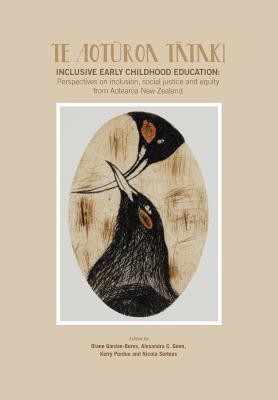
- We will send in 10–14 business days.
- Author: Diane Gordon-Burns
- Publisher: Nzcer Press
- Year: 2012
- Pages: 228
- ISBN-10: 1927151430
- ISBN-13: 9781927151433
- Format: 17 x 24.4 x 1.2 cm, softcover
- Language: English
- SAVE -10% with code: EXTRA
Te Aot Roa T Taki - Inclusive Early Childhood Education (e-book) (used book) | bookbook.eu
Reviews
Description
How do early childhood education settings become places where everyone involved is able to say they feel they belong? What kinds of questions about inclusion, social justice and equity might it be pertinent and productive to ask of contemporary Aotearoa New Zealand early childhood teachers and their practice? When, how and why might teachers intervene to address issues of injustice and exclusion that arise in the context of early childhood work? These are the kinds of questions explored in this book. Addressing how teachers and policy makers can work for inclusion with diverse children and families, this book focuses on the development of positive attitudes to difference, diversity and inclusion. It suggests possible ways to reduce and eliminate barriers to learning and participation in early childhood communities. The authors interrogate notions of difference, inclusion and exclusion from the perspectives of M ori and cultural responsiveness, Te Tiriti o Waitangi and biculturalism, interculturalism, gender, sexualities, economic disadvantage, age, religion and disability.
EXTRA 10 % discount with code: EXTRA
The promotion ends in 19d.01:12:18
The discount code is valid when purchasing from 10 €. Discounts do not stack.
- Author: Diane Gordon-Burns
- Publisher: Nzcer Press
- Year: 2012
- Pages: 228
- ISBN-10: 1927151430
- ISBN-13: 9781927151433
- Format: 17 x 24.4 x 1.2 cm, softcover
- Language: English English
How do early childhood education settings become places where everyone involved is able to say they feel they belong? What kinds of questions about inclusion, social justice and equity might it be pertinent and productive to ask of contemporary Aotearoa New Zealand early childhood teachers and their practice? When, how and why might teachers intervene to address issues of injustice and exclusion that arise in the context of early childhood work? These are the kinds of questions explored in this book. Addressing how teachers and policy makers can work for inclusion with diverse children and families, this book focuses on the development of positive attitudes to difference, diversity and inclusion. It suggests possible ways to reduce and eliminate barriers to learning and participation in early childhood communities. The authors interrogate notions of difference, inclusion and exclusion from the perspectives of M ori and cultural responsiveness, Te Tiriti o Waitangi and biculturalism, interculturalism, gender, sexualities, economic disadvantage, age, religion and disability.


Reviews